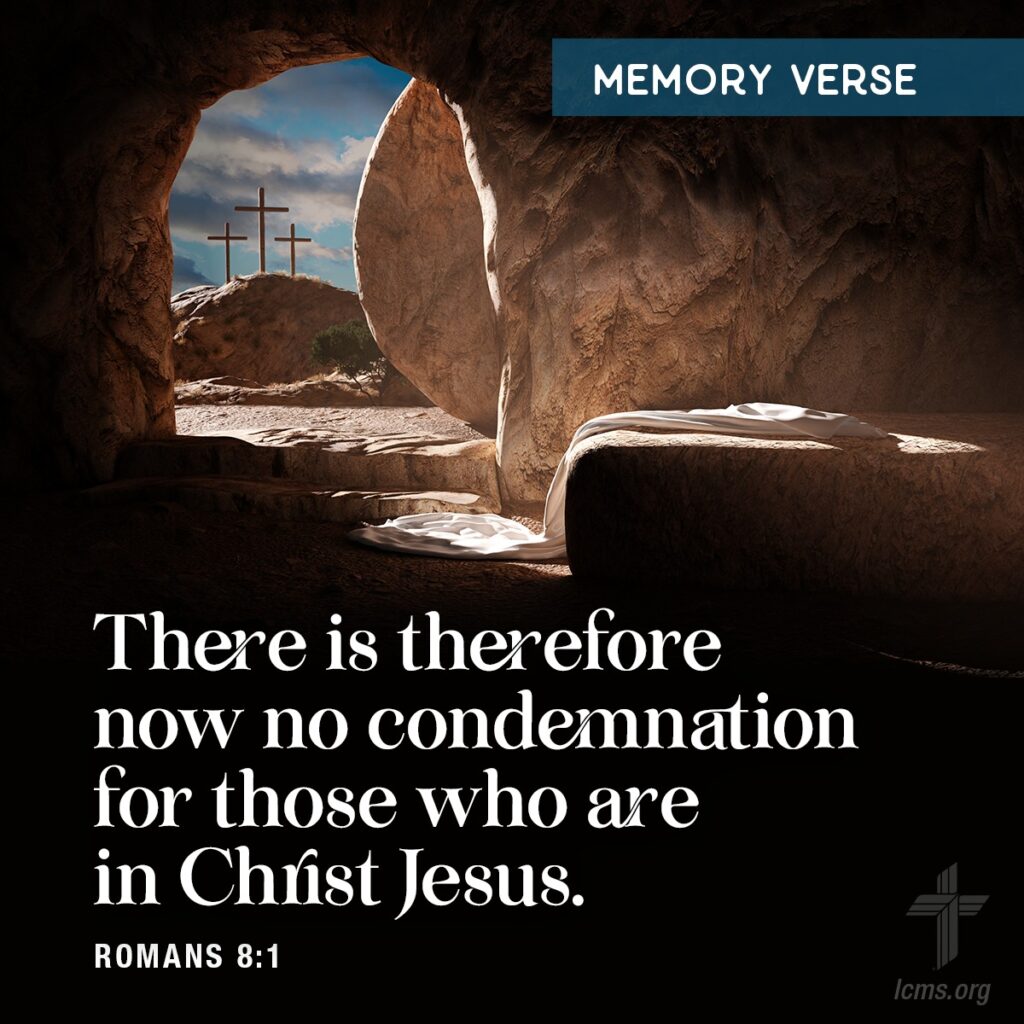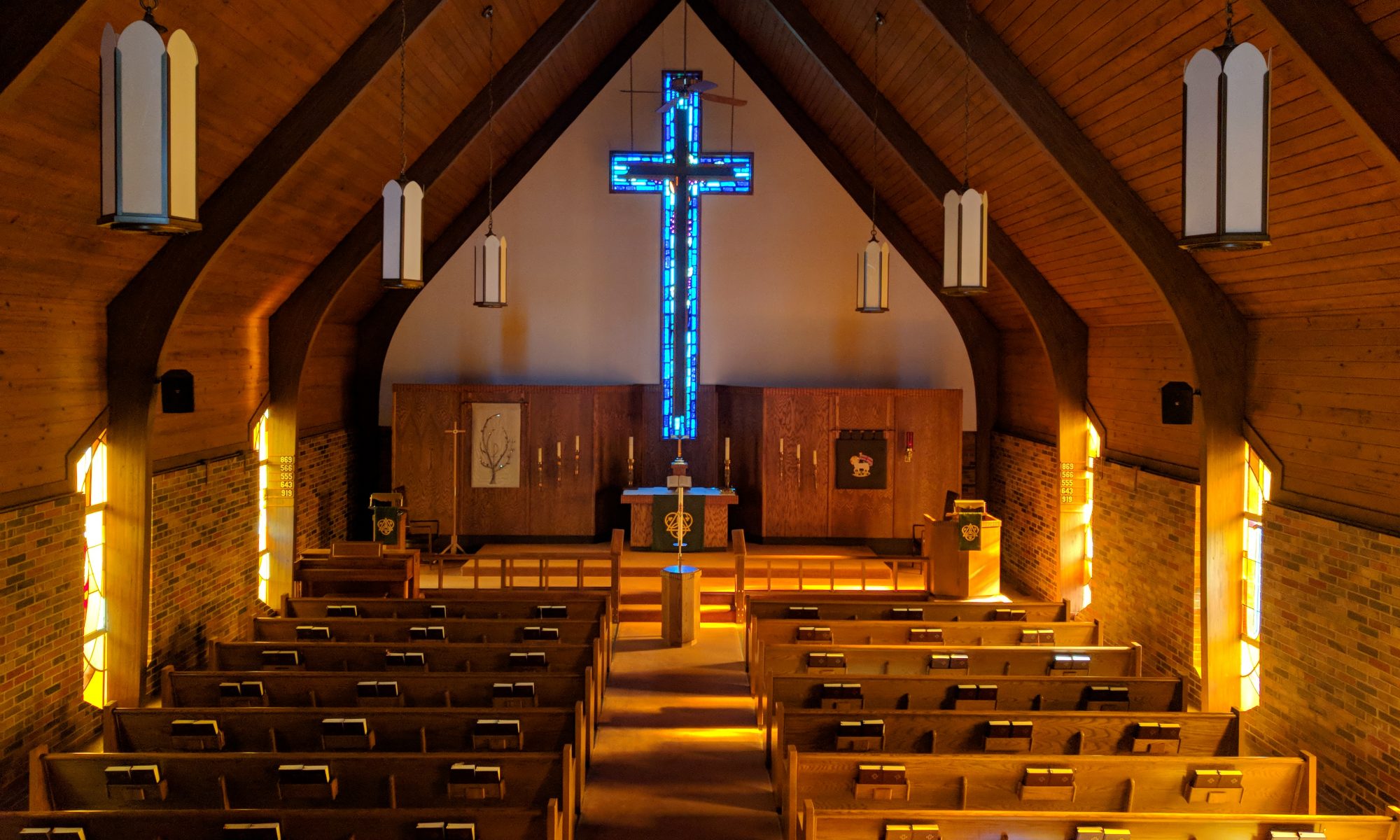
Lessons: Ezekiel 37:1-14, 1 John 5:4-10, John 20:19-31
Hymns: LSB 614, 459, 468, 470, 471, 464
Grace, mercy, and peace to you from God our Father and our Lord and Savior, Jesus Christ. Amen.
Permit me to begin today not with the first day of the week on Easter like our Gospel does, but with the first day of Creation. As God’s Word says, “In the beginning, God created the Heavens and the Earth” (Gen. 1:1). He created the world in just six days, forming out of nothing everything that exists simply by speaking. That is simply remarkable. The voice of God can bring into being all things. Many have desired to wish or talk their way into obtaining things. But God formed out of nothing the universe and all that it is in by His voice!
As you are well aware, the Creation account is widely disputed. Many figure there’s too much evidence for an old Earth or for evolutionary processes that ultimately resulted in man.
For those who doubt Genesis 1-2, remember Jesus attests to Creation. Even before carbon dating and evolutionary theories were invented, some have questioned the Biblical record. Five hundred years ago, Dr. Martin Luther offered some wise words to those who doubt, writing, “When Moses writes that God created heaven and earth and whatever is in them in six days, then let this period continue to have been six days, and do not venture to devise any comment according to which six days were one day. But if you cannot understand how this could have been done in six days, then grant the Holy Spirit the honor of being more learned than you are. For you are to deal with Scripture in such a way that you bear in mind that God Himself says what is written. But since God is speaking, it is not fitting for you wantonly to turn His Word in the direction you wish to go” (What Luther Says, p. 93).
On the first day of the week, the day we now call Sunday, God said, “Let there be light.” And there was light. On the sixth day, Friday, God made man in a remarkable departure from His usual practice of creating by speaking. He formed the dust of the ground, and breathed into his nostrils the breath of life, and man became a living being. He then said it is not good for Adam to be alone, so He caused a deep sleep to fall on Adam. God took one of Adam’s ribs and built it into a woman. Adam was filled with joy.
On the seventh day, God rested. God set the pattern for His people through His work of Creation. Throughout the Old Testament, the last day of the week—the seventh day—was to be a Sabbath Day—a day of rest for His people. This allowed God’s people to set aside time to listen to the life-giving, lifesaving, Word of God.
When Eve did not listen to the Word, but instead listened to Satan and her own senses, she sinned and Adam along with her. They brought the world into sin. Despite their rebellion, God promised to take their sins away through her Seed.
God fulfilled His promise on Good Friday. Jesus, through the shedding of His innocent Blood as He bore the world’s sin in His Body, redeemed all mankind. He paid for the sins of the entire world through His sacrificial death.
Just as God created man on the sixth day of the week, so He redeemed man on the sixth day of the week. And just as God rested on the seventh day of Creation, so the Body of our Lord Jesus Christ rested in the tomb on the seventh day of the week—Holy Saturday.
On the next day—the eighth day—or the beginning of a new week, Jesus, the Lord of Life, rose triumphantly from the grave, just as He said He would and just as the Scriptures had prophesied. The Word of God is proven, yet again, to be true. God’s Word does not fail, nor does God tell lies in His Word.
That evening, still the first day of our Lord’s resurrection, the disciples were hiding behind locked doors for fear of the Jews. The reports were coming in: Jesus is risen. Some had already seen Him. Others heard the report from an angel.
It should have been no real surprise. After all, Jesus said He would rise. But, as I said last Sunday, it was hard for them to unsee what they had seen. Last week, we heard of the women who wanted to give Jesus a proper burial on Sunday morning. Once they learned from the angel Jesus is risen, they were too afraid to say anything. Also last week, I must admit that I stumbled a little during the prayers of the Church. Here’s why: in preparing for the service, I used the prayers written by our church body for Easter Sunday. I noticed something that I wanted to change, but quickly forgot and had to edit one prayer on the fly during the service. The prayer asked for greater faith than the women. I didn’t like that, because it wasn’t just the women who were afraid or troubled by hearing of the resurrection account. Today we heard the men Jesus raised up to be Apostles are also afraid. And Thomas doubted. After all, if the Jews were willing to put Jesus on a false trial and nail Him to a tree, what will they do to His followers? They didn’t want to endure the same things Jesus went through.
It’s easy to criticize them, saying, “Didn’t they realize Jesus would rise from the dead? What are they so afraid of?” But remember, they, like the women, had a hard time processing all these things that are happening so quickly. Also, Jesus had warned them that they will endure suffering on account of His name, saying, “If the world hates you, know that it has hated me before it hated you. If you were of the world, the world would love you as its own; but because you are not of the world, but I chose you out of the world, therefore the world hates you. Remember the word that I said to you: ‘A servant is not greater than his master.’ If they persecuted me, they will also persecute you” (John 15:18-20). Jesus told them this on Maundy Thursday. They may have been dwelling on these words, more than Jesus’s promises to rise, since this persecution would directly affect them.
Today, many are timid when telling others the good news of Jesus Christ. Why are they afraid? Don’t they realize Jesus is risen? Maybe we should not be so hard on those disciples on Easter Sunday. The same fears the disciples faced are held by many of Christ’s disciples today. We don’t even want to face our own families. Instead of inviting them to church and adding, “You can’t commune at Grace yet because you’re not a Missouri Synod Lutheran in good standing, but we want you to attend,” we just stay home with our families, or we go to church without them. Why be afraid of what God’s Word so clearly teaches?
The Scriptures teach us boldness and confidence in Christ and His Word. Psalm 56:10-11 says, “In God, whose word I praise, in the Lord, whose word I praise, in God I trust; I shall not be afraid. What can man do to me?” Jesus gave every reason for the disciples to stop being fearful when He appeared in their midst behind those locked doors and said those wonderful, gospel-filled, words of absolution. He said to them, “Peace be with you!” This is far more than a well-wish or a friendly greeting. He is pronouncing His peace upon them. The resurrected Christ is victorious, and He is granting them the victory. They have peace with God!
Jesus even sent the disciples out on Easter Sunday to forgive and retain sins. This is part of His institution of the pastoral office, and exercising the Keys is no easy task. Pastors must forgive the sins of the repentant Christians and retain the sins of the unrepentant. This means he must refuse to absolve the unrepentant, and forgive the sins of those who have done heinous and vile sins when that sinner repents. The community may hate someone for what he has done, but God’s servant forgives him when he is repentant and trusts in Jesus. Or, the community may ignore the seemingly innocuous sins of a well-known and well-loved community member. But the pastor cannot absolve him if he remains unrepentant or does not trust in Jesus. The temptation is to basically say everyone is forgiven and not consider their faith or penitence. Pastors must resist this temptation, for it is dishonest.
When Jesus instituted the office of the public ministry, He breathed on the disciples and said, “Receive the Holy Spirit.” This hearkens back to the Creation account, where the Spirit was hovering over the face of the deep. Even more so, it brings to mind the creation of man. God breathed into the dust-shaped nostrils the breath of life to bring life to the first human. Now, Jesus breathed on the disciples. Jesus was giving them the Holy Spirit (for the Hebrew word for spirit, wind, and breath are all the same word). The Holy Spirit brings life to mankind who were once dead in their sins and trespasses. This is done through the preaching of the Gospel and the pronouncement of the forgiveness of sins. What a joy! We who were once dead in our sin are now made alive in Christ. He took our hearts of stone and made them hearts of living flesh. We now live and abide in Christ, for He has cleansed us of our sin and invites us to participate in the fellowship of His Body and Blood.
Our worship is now on Sunday—the first day of the week, as we continue to celebrate our Lord’s resurrection and we give the first fruits of our time with the sacrifice of praise and thanksgiving (Psalm 116:17, 1 Peter 2:4-5). The Sabbath requirement to rest on the seventh day was fulfilled in Christ (Col. 2:16-17). There is no longer a commandment that worship must fall on a specific day, but it makes sense to follow the example of the Apostles to gather in God’s house on Sunday—the beginning of a new week (Acts 20:7). We hear the absolution, guaranteeing that the sins of the past week are gone, and we go to the Lord’s altar to receive the Body and Blood of Jesus for our forgiveness. This gives us a glimpse of the New Creation that we will fully enjoy when Jesus returns in glory on the Last Day. Amen.
The peace of God which passes all understanding keep your hearts and minds in Christ Jesus to life everlasting. Amen

